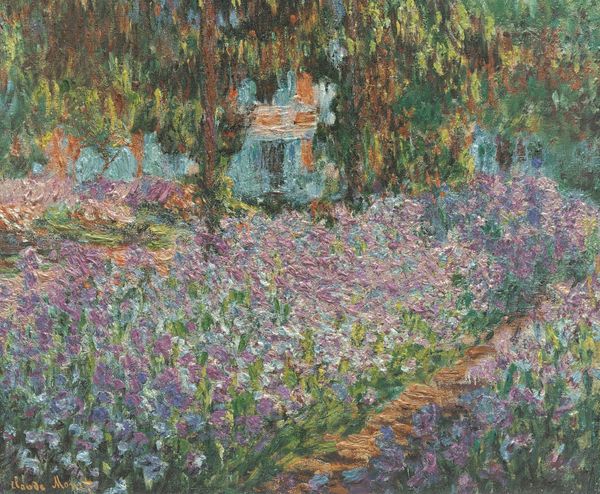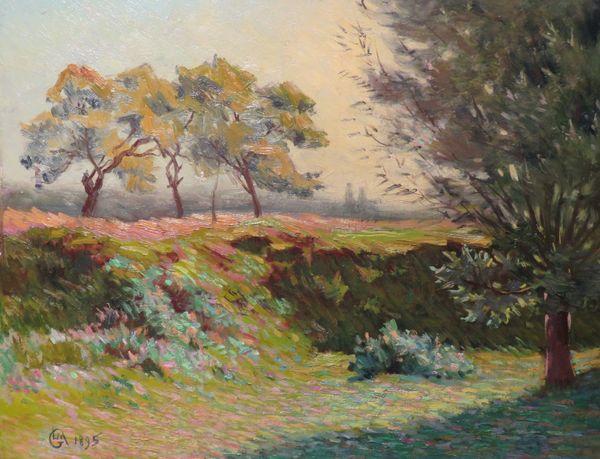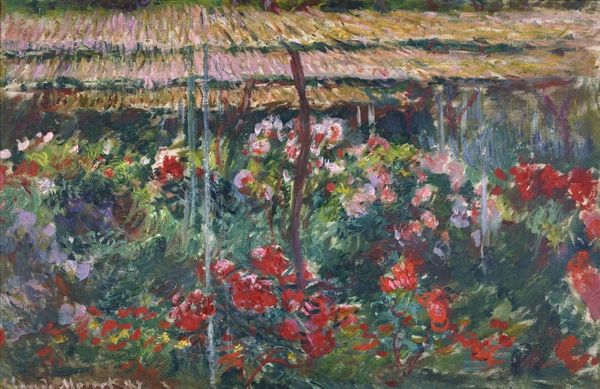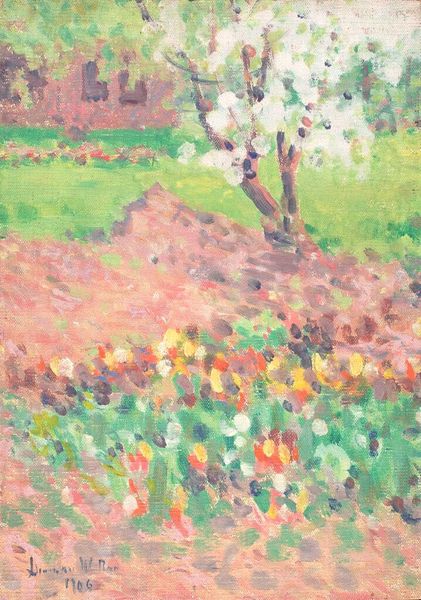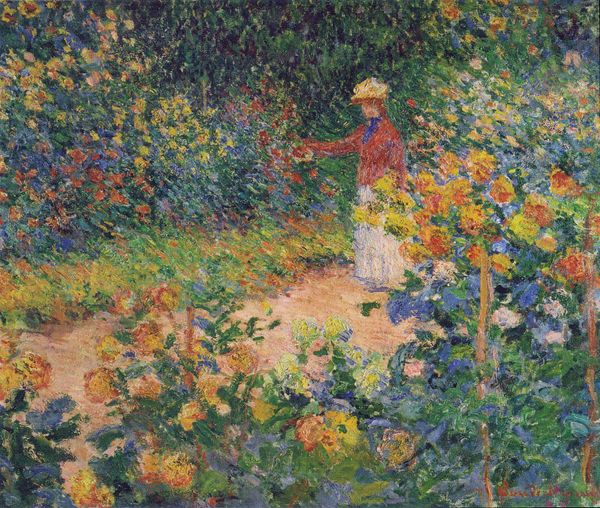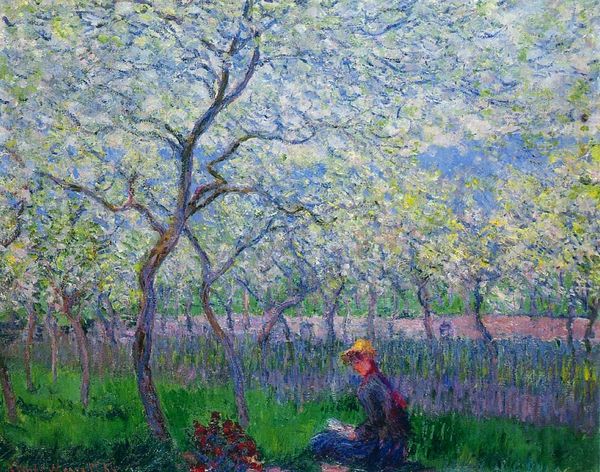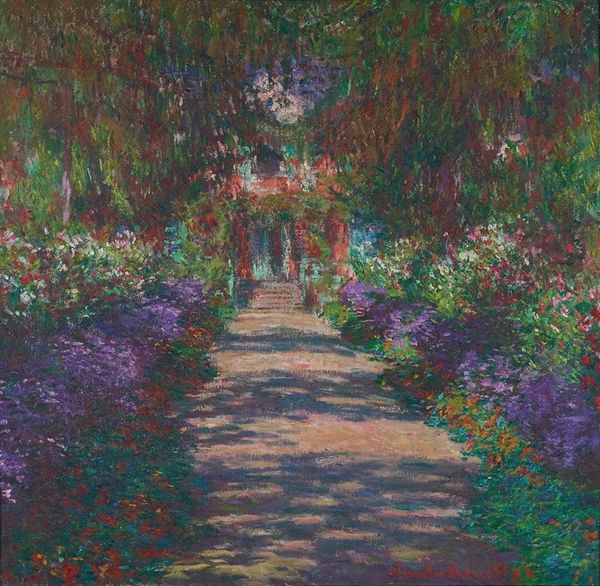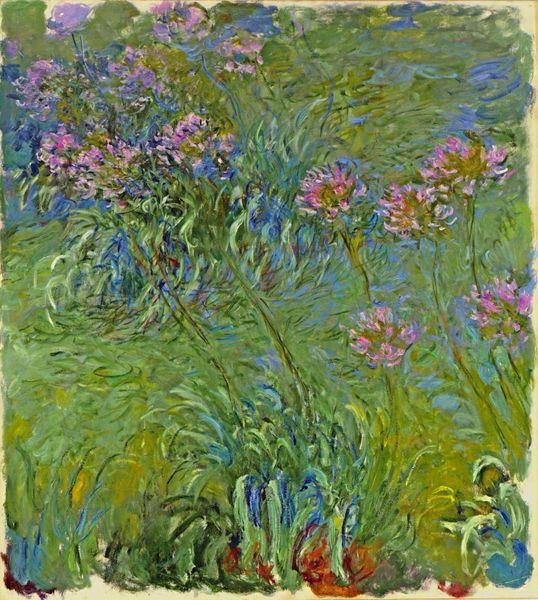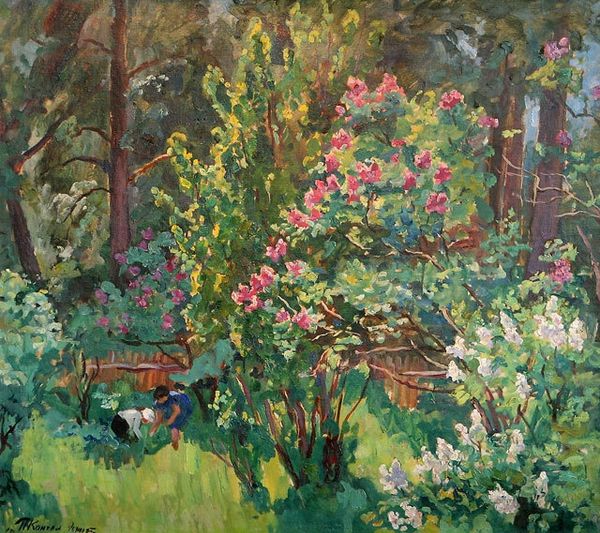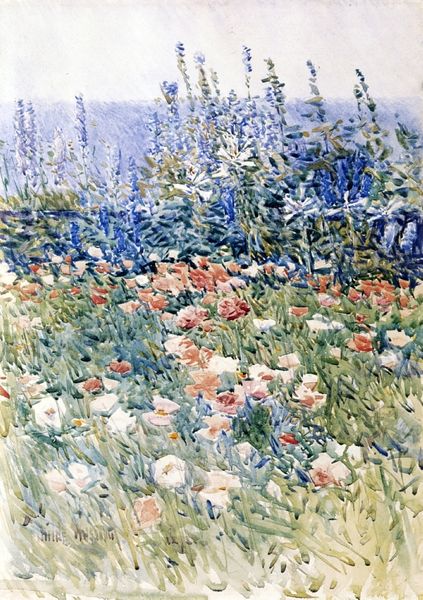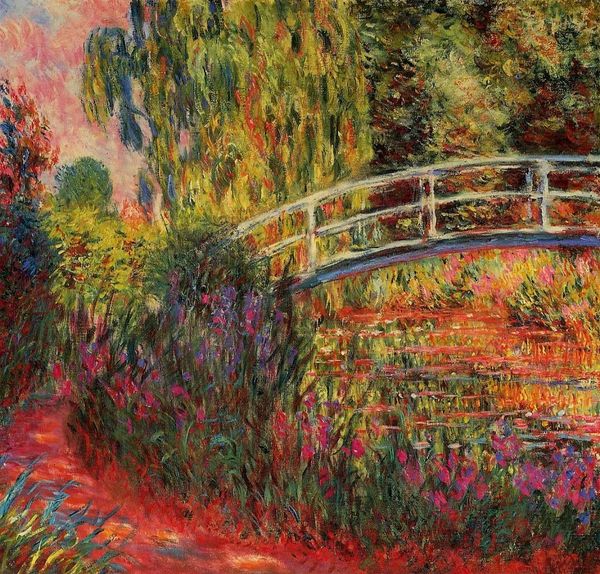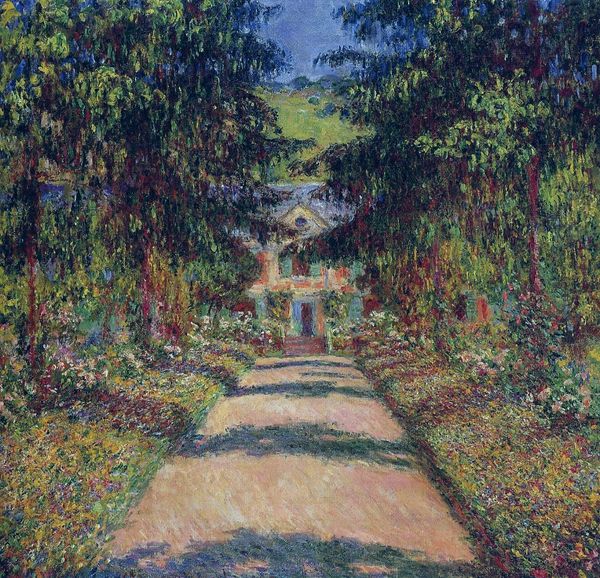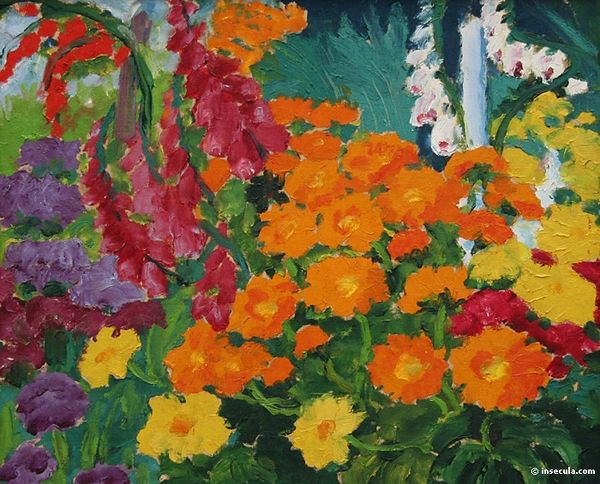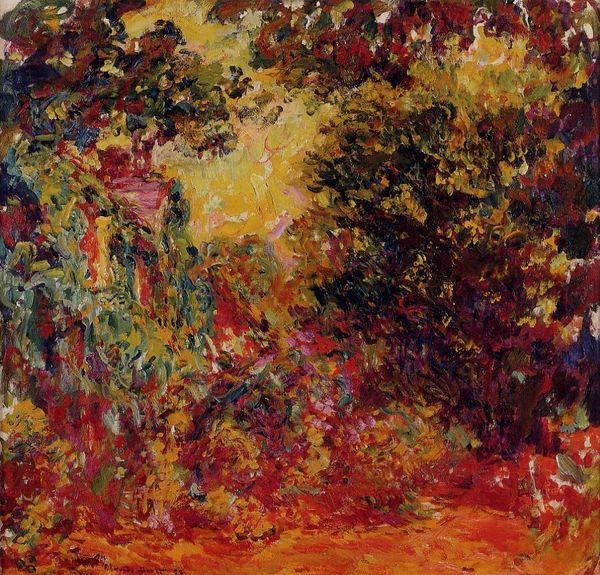
Copyright: Public Domain: Artvee
Claude Monet painted The Artist’s Garden in Giverny, capturing the essence of his personal sanctuary. Monet, a leading figure of the Impressionist movement, sought refuge in his garden, a space that allowed him to explore the sensory experience of light and color that defined much of his work. Beyond its aesthetic appeal, the garden embodies a subtle defiance of the rigid social expectations placed on artists of the time. Monet, rather than focusing on traditional subject matter, chose to immerse himself in nature. As he once remarked, "I perhaps owe having become a painter to flowers.” The garden, and the act of painting it, became intertwined with Monet's identity. He cultivated a space that was both a personal retreat and a site of artistic creation, pushing the boundaries of what was considered worthy of representation. The vibrant colors and fluid brushstrokes evoke an emotional response, inviting viewers to contemplate the simple beauty of nature. Ultimately, Monet’s garden reflects a larger societal shift towards valuing individual experience and the emotional resonance of the natural world.
Comments
No comments
Be the first to comment and join the conversation on the ultimate creative platform.
